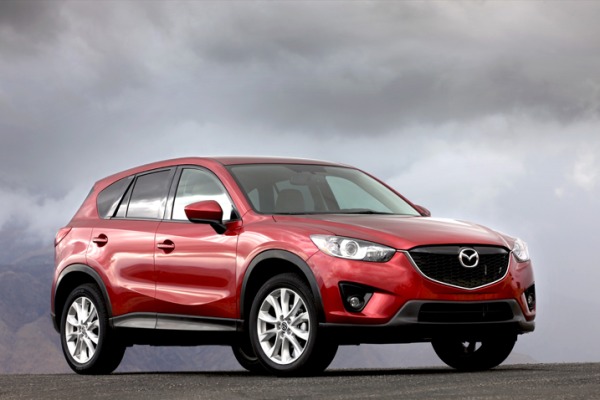
Here at Edmunds, there's nothing we like more than talking about cars. That's why they call us the car people. So if you're shopping for a car and finding yourself frustrated or confused or just needing a second opinion, talk to us. Our Live Advice team is here seven days a week, ready to answer any questions you may have.
With the U.S. economy finally growing again, leasing a car is an option that more and more people are considering. In fact, our Industry Analysis team reports that the last two months of 2012 saw some of the highest percentages of new car leasing in a decade.
Leasing can be complicated, especially if you are new to the idea, so it's no surprise that we've been fielding quite a few lease questions lately. Here are a few we've had recently, as well as our answers.
Lease New or Buy Used?
A concerned mother writes, "Would it be more economical for my 30-year-old daughter, who drives about 15,000 miles a year, to lease a new Mazda CX-5 or to buy a used one?"
Generally speaking, the most economical approach to car ownership is buying a reliable used car and keeping it for five years or more. We recently examined three different scenarios: buying a new car, leasing a new car and buying a 3-year-old used car. We found that buying used can save you thousands of dollars per year compared to the average lease deal, given average ownership costs over five years, and assuming 15,000 miles driven per year.
That's not to say that no one should ever lease a new car. Leasing has its advantages, which can include lower monthly payments, fewer repair costs (since the car is usually under warranty during the entire lease term) and the pleasure of driving a brand-new car every two or three years. These perks and conveniences may be worth the extra expense to some shoppers. If your daughter finds them appealing, encourage her to check our car incentives page to see whether Mazda is offering any lease specials on the CX-5. Manufacturer-backed specials can sweeten a lease deal considerably.
One more note: The 2013 CX-5 is an all-new model for Mazda, so unfortunately your daughter won't find too many used ones on the market for another year or two. But Mazda's outgoing CX-7 model would be a good alternative, as would a Honda CR-V, which is one of our Used Car Best Bets.
Trade-in on a Lease?
Another shopper, pursuing a no-money-down lease on a new Mazda, asks us, "If I trade in my old car, will the dealer use my car toward the tax, tags, etc., that I owe and then give me a refund for any excess?"
The short answer here is yes — if that's what you'd like the dealer to do. You could also ask the dealer to apply any excess funds toward the capitalized cost (or "cap cost") of the lease, which is the total amount being financed over the lease period. This would mean a lower monthly payment for you.
Also, make sure you're getting a fair price for your trade-in by calculating its True Market Value (TMV®) before you finalize the deal. TMV is an estimate, based on actual sales data, of what others are getting in your area for the same model in similar condition. Keep in mind that you may be able to get even more money by selling the car yourself or by offering it to a dealer that specializes in buying used cars, such as CarMax or AutoNation Direct.
Fix It or Turn It In?
Last up is a Toyota RAV4 driver who is nearing the end of her lease. The car has some front-end damage, and she wants to know, "Should I get this fixed before bringing it back, or return it the way it is. What might save me the most?"
We recommend taking your RAV4 to a couple of local body shops to see what they would charge to repair the damage. Then ask your leasing company for a lease return inspection. Typically, the lease company would call you to arrange this about a month before your lease ends, but you can also set up this appointment yourself. An inspector will come to examine your vehicle and, afterward, provide you with an estimate of the charges you'd be expected to pay if you returned the car as is.
Once you have these two estimates, it's simply a matter of comparing them and picking the one that's cheaper. This requires a bit of legwork on your end, but you may be surprised at how much money you can save. Plus, you'll have peace of mind knowing that you won't have to face any big cost surprises when you finally turn the car in.
More Questions About Car Leasing
If you have questions about leasing, check out our car leasing tips, including our Quick Guide to Leasing a New Car and Four Ways to Spot a Good Lease.
We also have a vibrant online community of leasing experts in our Prices Paid forums, ready to help you evaluate a deal.
And, of course you can always ask the car people on the Edmunds Live Advice team. We'd love to hear from you.